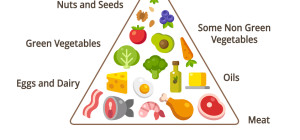 When we think about disease or illness, it's often things like cancers and other large-scale diseases that hog the limelight. The fact remains that there are less publicised but still important diseases like calcium related diseases, which can greatly reduce one's overall quality of life. Calcium is an essential component for building and maintaining bone, with almost 99 per cent of the body's total calcium levels being found in the bones and within the teeth. The way that calcium works is that it combines with other mineral to provide a hard crystal that works to give bones strength and structure.
When we think about disease or illness, it's often things like cancers and other large-scale diseases that hog the limelight. The fact remains that there are less publicised but still important diseases like calcium related diseases, which can greatly reduce one's overall quality of life. Calcium is an essential component for building and maintaining bone, with almost 99 per cent of the body's total calcium levels being found in the bones and within the teeth. The way that calcium works is that it combines with other mineral to provide a hard crystal that works to give bones strength and structure.
As part of our usual bodily function, a small amount of calcium is absorbed into the blood to aid with our day to day lives, and calcium is a crucial part of healthy heart, muscle, blood and nerve functions. The calcium that is absorbed and used in the body is best when it comes from your diet, because otherwise it is drawn from the bones - a bone bank if you will. If you're not getting enough calcium in your diet your body is going to take from the ‘bone bank' which will be used in other parts of the body. If you're using more calcium than you deposit, over time your bone density and your overall bone strength is going to decline and you'll be at risk of developing diseases like osteoporosis. Taking an organic calcium supplements can be a huge help for ensuring that your calcium levels aren't dipping too low.
Poor bone health can result in fractures and breaks from brittle or weak bones. This is something that can increase in probability as you age, and so it's a vital part of the aging process that you're working to monitor your calcium intake so that you're meeting target amounts. Adults need to ensure that they're taking in at least 1,000 mg per day, with post-menopausal women needing 1,300 mg per day.
What are some effects of calcium on health?
Scientists have been interested in the effect of calcium on health for a long time, and they have found a few different health complaints that are related to calcium deficiency.
Osteoporosis and Bone health
Your bones need plenty of Vitamin D and calcium during the early stages of life and throughout adolescence to ensure that you're meeting the right amounts of calcium and also maintaining the health of your bones into adulthood. After the age of 30, your bones are going to slowly begin to lose calcium, but it's possible to mitigate this loss of calcium by ensuring that you continue to consume calcium rich foods-and supplements if required. Maintaining a healthy lifestyle is also going to help your bones stay in peak form. Osteoporosis is a serious health concern for over 10 million adults over the age of 50 years in the United States alone. Making sure that calcium and Vitamin D are consumed in the right amounts are of huge importance when it comes to managing this risk.
Cardiovascular disease
Studies have tried to find a link between calcium intake and cardiovascular disease, but the results have not been clear. Some studies have found that getting enough calcium might protect people from getting strokes and heart disease, while other studies have found that some people who take a lot of calcium (too much for their age or sex) may have an increased risk of heart disease. As a result, the evidence is not conclusive and more research will need to be done in this area to discover if there is a link.
High blood pressure
It has been found that when you consume the right amounts of calcium that you're going to have a reduction of risk in experiencing high blood pressure (or hypertension).
Ensuring that you consume enough calcium is not just related to osteoporosis and bone health. It's important that you take the necessary steps to alleviate the risks associated with calcium deficiency.







